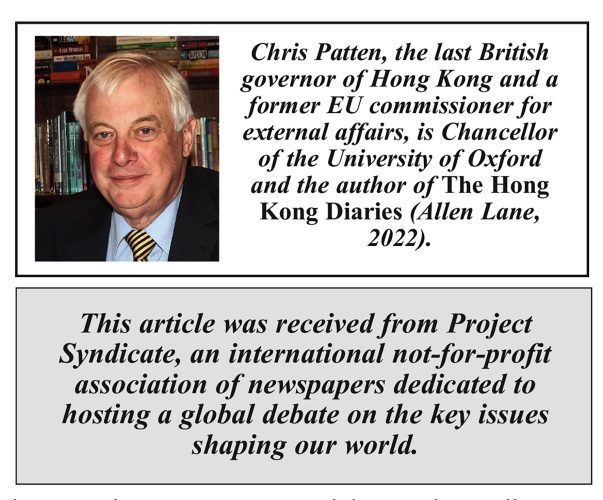
The West must not let Putin win
By Chris Patten LONDON – “I looked the man in the eye.

By Chris Patten LONDON – “I looked the man in the eye.
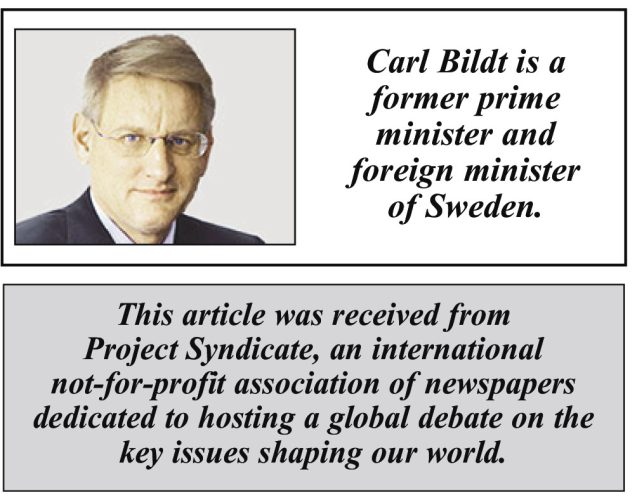
By Carl Bildt STOCKHOLM – The news this past week was undoubtedly met with relief in Kyiv and with grief in the Kremlin.
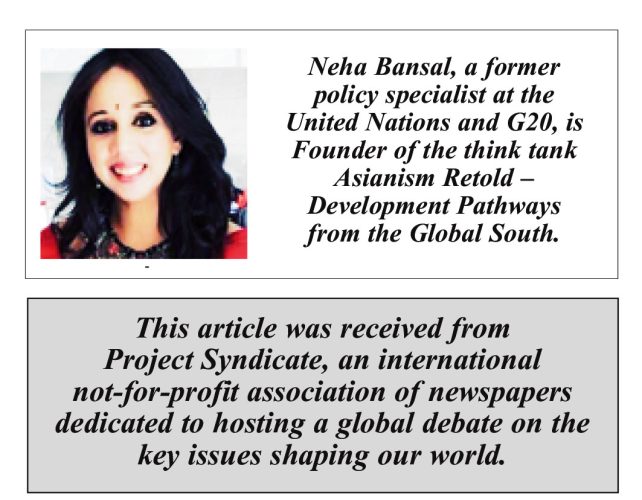
By Neha Bansal NEW DELHI – This year marks the 30th anniversary of the United Nations’ International Year of the Family (IYF).
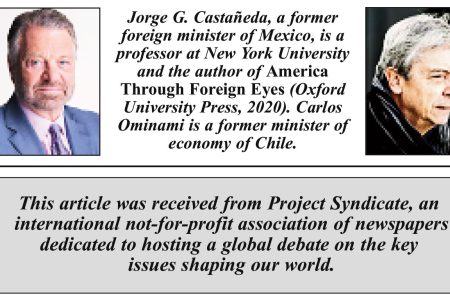
By Jorge G. Castañeda and Carlos Ominami MEXICO CITY – Violence lurks in nearly all of Latin America’s major cities.

By Robert Redford and Xiye Bastida NEW YORK – There was a time, not so long ago, when the depletion of Earth’s ozone layer seemed like an insurmountable challenge.

By Daoud Kuttab JERUSALEM – It is hard to imagine that anyone in the Levant or the broader Middle East managed to sleep on Saturday night, as Iran launched hundreds of drones and ballistic missiles toward strategic sites in Israel and Israeli settlements in the occupied West Bank.
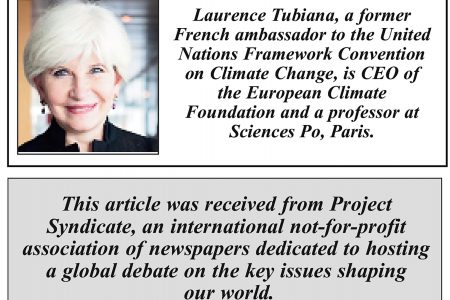
By Laurence Tubiana PARIS – After years of avoiding any explicit mention of the primary cause of climate change, negotiators at the United Nations Climate Change Conference (COP28) in Dubai last year finally reached an agreement calling for a “transition away from fossil fuels.”

By Richard K. Sherwin NEW YORK – Robert F. Kennedy, Jr.,

By Iván Duque Márquez BOGOTÁ – Guyana is on the cusp of a profound socioeconomic transformation unlike any seen in Latin America and the Caribbean.
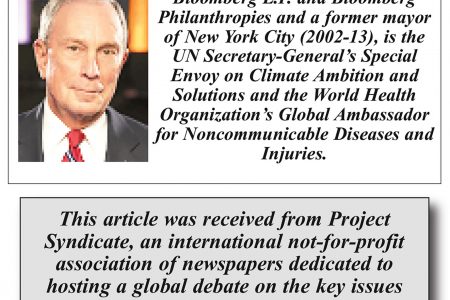
By Michael R. Bloomberg NEW YORK – Even as COVID-19 recedes into the background of everyday life, the broader decline in US life expectancy is still with us, because too many elected officials refuse to take its causes seriously.

By Yacob Mulugetta, Dean Bhekumuzi Bhebhe, and Niclas Hällström LONDON/JOHANNESBURG – At the most recent United Nations Environment Assembly (UNEA), held in Nairobi, African countries took a strong stand against potential new technologies that, if developed, could tip an already disrupted climate into chaos.

By Mohamed A. El-Erian and Michael Spence CAMBRIDGE/MILAN – India’s recent economic success, solid momentum, and promising prospects are making the country ever more influential both regionally and internationally.

By Omar Ashour DOHA – The terrorist attack on the Crocus City Hall concert venue in a Moscow suburb was no bolt from the blue.
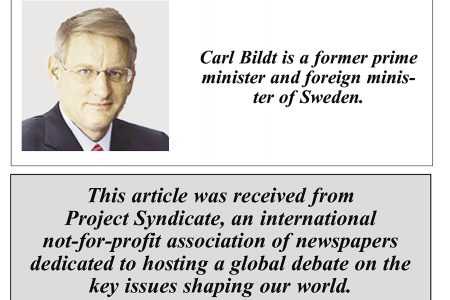
By Carl Bildt STOCKHOLM – Is the dominance of “Indo-Pacific” thinking leading Western strategists astray?
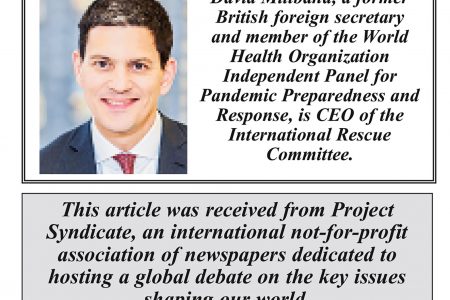
By David Miliband NEW YORK – On March 8, the United Nations Security Council passed a resolution calling for an immediate cessation of hostilities in Sudan during the holy month of Ramadan.
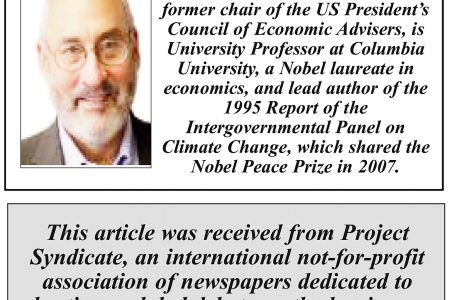
By Joseph E. Stiglitz NEW YORK – Last year, US President Joe Biden’s administration infuriated lobbyists representing Big Tech firms and others that profit from our personal data by denouncing a proposal that would have gutted domestic data privacy, online civil rights and liberties, and competition safeguards.
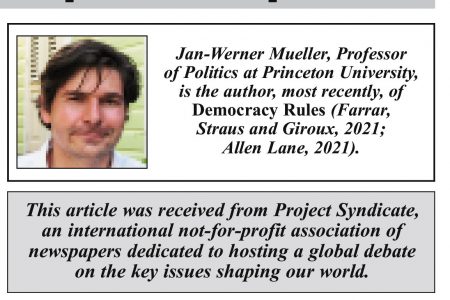
By Jan-Werner Mueller PRINCETON – Among her final acts as chair of the Republican National Committee, Ronna McDaniel requested that her colleagues endorse the two people handpicked by Donald Trump to replace her.
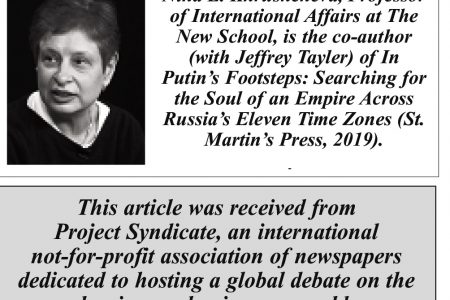
Project Syndicate: As the Ukraine war hit the two-year mark, and following Russian opposition leader Alexei Navalny’s death in prison, the United States and the European Union have piled new sanctions onto Russia.
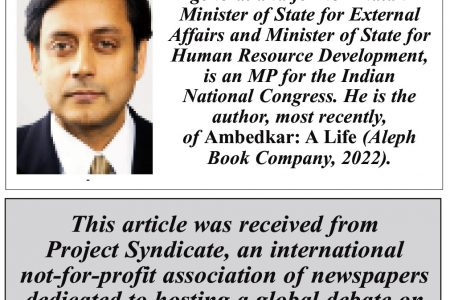
By Shashi Tharoor NEW DELHI – With around 968 million people registered to vote, India’s upcoming general election (to be held over several weeks in April and May) will be the largest democratic exercise in human history.
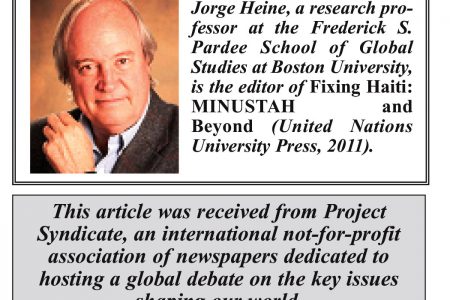
By Jorge Heine BOSTON – The prime minister of one of the larger Caribbean countries travels to East Africa to secure a police deployment that would help address runaway gang violence back home, where a recent attack on the national penitentiary freed 4,000 prisoners.
The ePaper edition, on the Web & in stores for Android, iPhone & iPad.
Included free with your web subscription. Learn more.